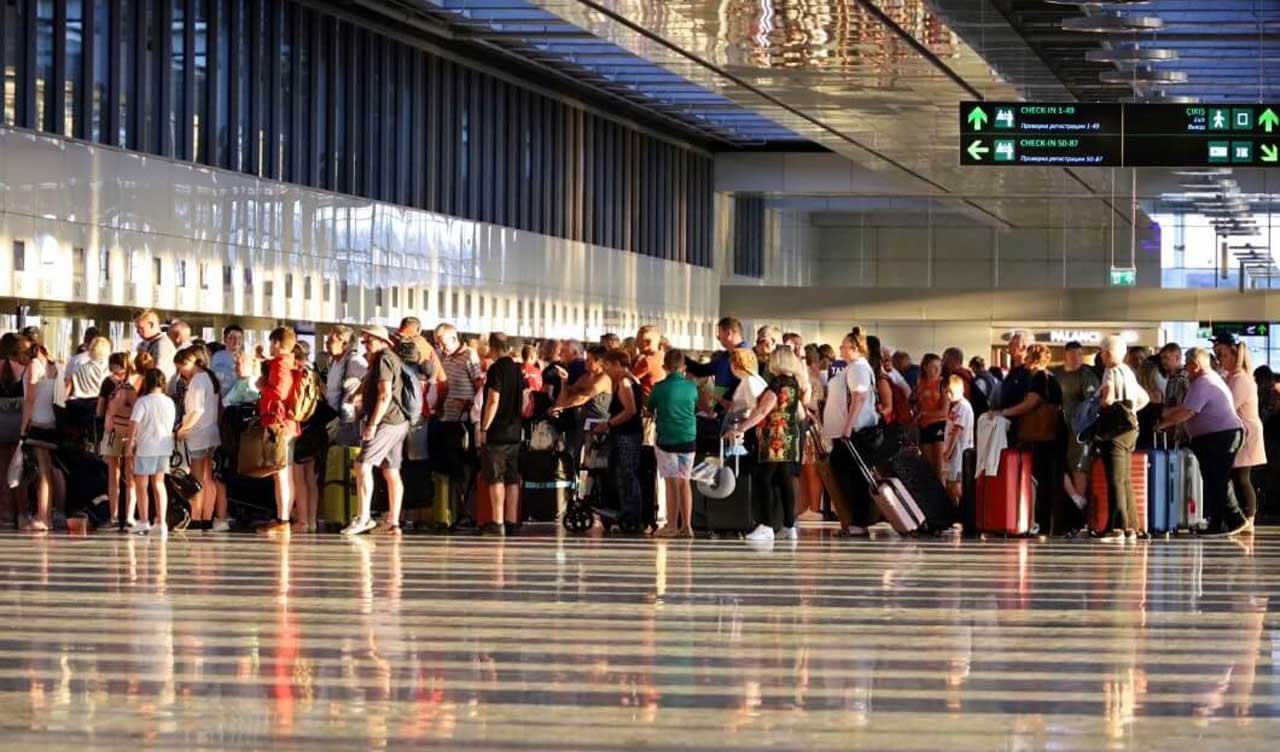The situation at airports is currently dramatic and will become even more dramatic in the coming weeks. The main cause of problems with air travel is “bottlenecks” that do not allow passengers to easily pass to aircraft.
This does not apply to all hub airports, but to the most important ones, that is, to those in which air hubs are located.
According to experts, the problems are caused by the fact that managers do not foresee the resumption of air travel.
Scorched by the unfortunate experience of 2020, when traffic collapsed again in the fall after a major recovery summer, decision-makers were more than a little reticent about recovery expectations, although they were largely predictable.
The flow of air travel began to rise again as if the lid of the pressure cooker had been opened and the impatience of the passengers had boiled away.
The problem is that for the normal functioning of the airport, it is necessary to make the path of passengers smooth in a small space where many obstacles must be overcome.
In no particular order: access to parking lots, then to terminals, then to primary security filters where they exist, then to check-in counters, then to security screening, then to customs and passport control, and finally, to boarding – all these obstacles present are potential bottlenecks.
The only way to avoid them is to put a sufficient number of people on each of them, provided that the equipment is adequate.
In general, airports are equipped to handle peak traffic, as long as all facilities are operational.
This is not always the case, and many airports have yet to open at full capacity for good reason: they don’t have the staff to fill all the vacancies.
The matter is further complicated by the fact that, depending on the functions, there are different powers between the police, subcontractor personnel, company employees, and airport employees. And coordination between them is not always easy, each defending their prerogatives and working conditions.
Finally, the lack of foresight on the part of those who make decisions at airports also plays an important role.
Air travel will likely increase dramatically once the vast majority of the population is vaccinated, borders open and health restrictions lifted.
During the pandemic, many employees, often specialized ones, have been forced to leave their jobs, voluntarily or not. Of course, it was not easy to replace them, especially since working conditions and salaries are not particularly attractive.
Therefore, it is curious that recruitment did not begin as early as late 2021, since training for many positions is quite lengthy, and administrative approvals are often necessary and difficult to obtain. After all, an airport is a particularly sensitive place. For example, German airports are short of about 7,200 employees, according to a study by the Institute for German Economics.
The consequence of this is the near impossibility of dealing properly with passengers who are understandably looking forward to that blessed moment when their flight takes off, of course with them on board.
Instead, they are offered a few hours of stress while many are already wary of flying, in conditions of comfort that are simply unacceptable.
However, we are only at the beginning of the summer season, and the peak of traffic is far from being reached.
The question arises: will the current experience of air travel discourage customers from traveling? Will they be able to bear repeating the experience? And then, after an outbound flight, they will have to return, often from another country where they do not know the language, habits, or culture?

